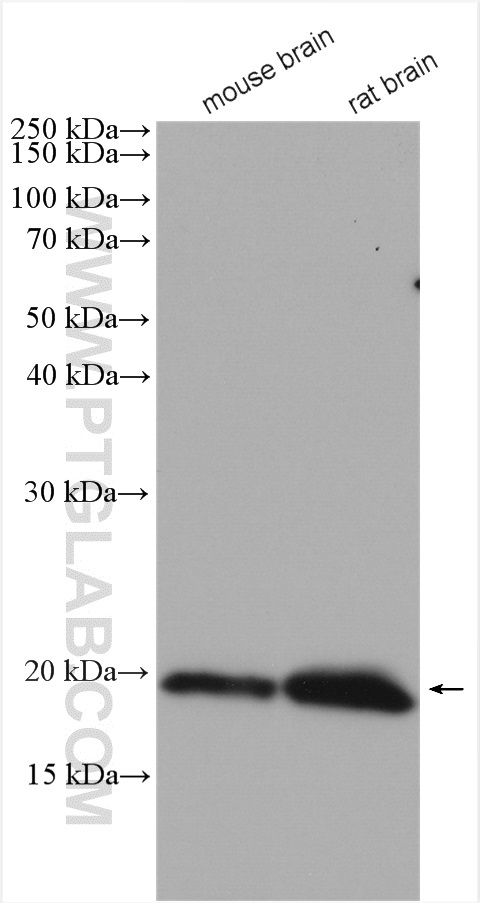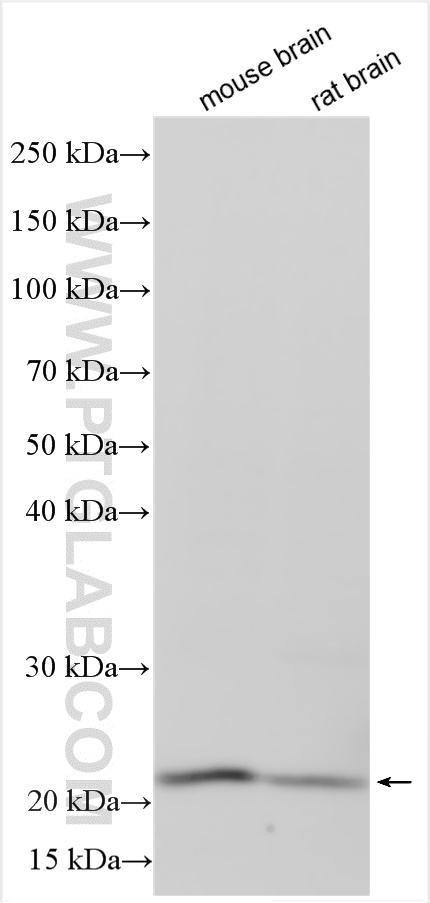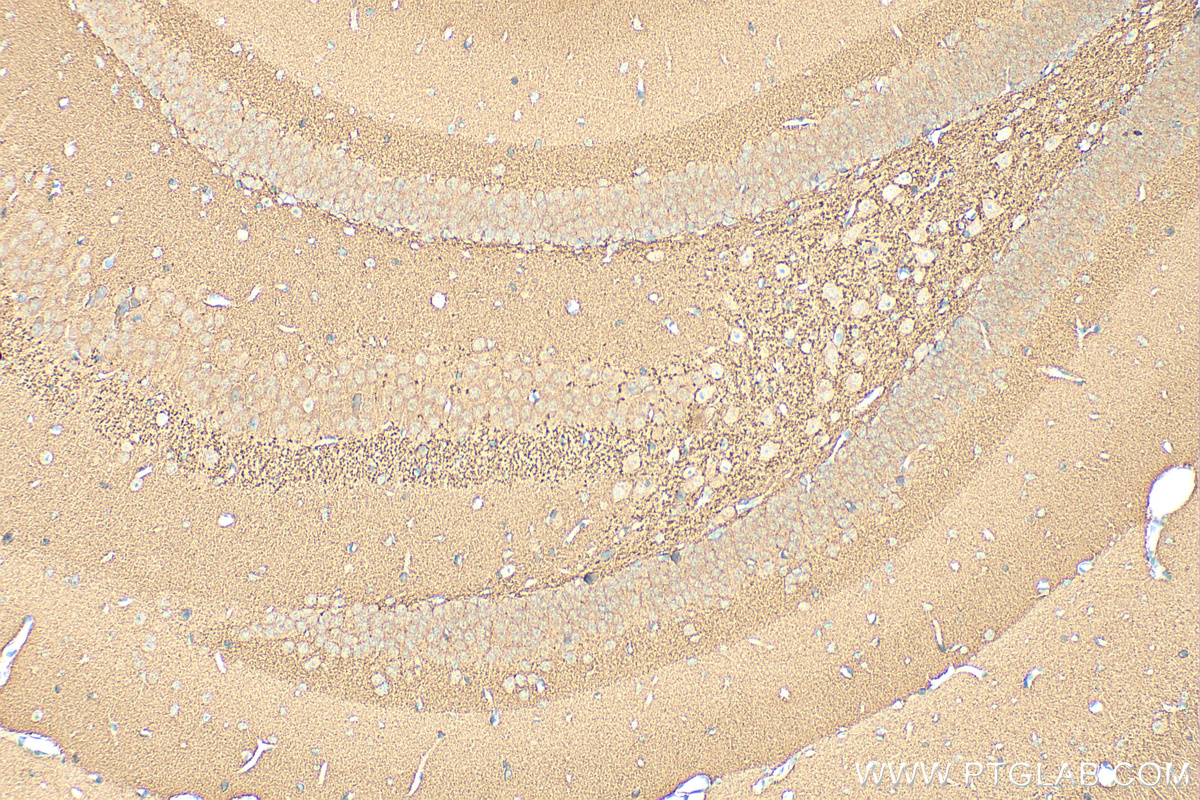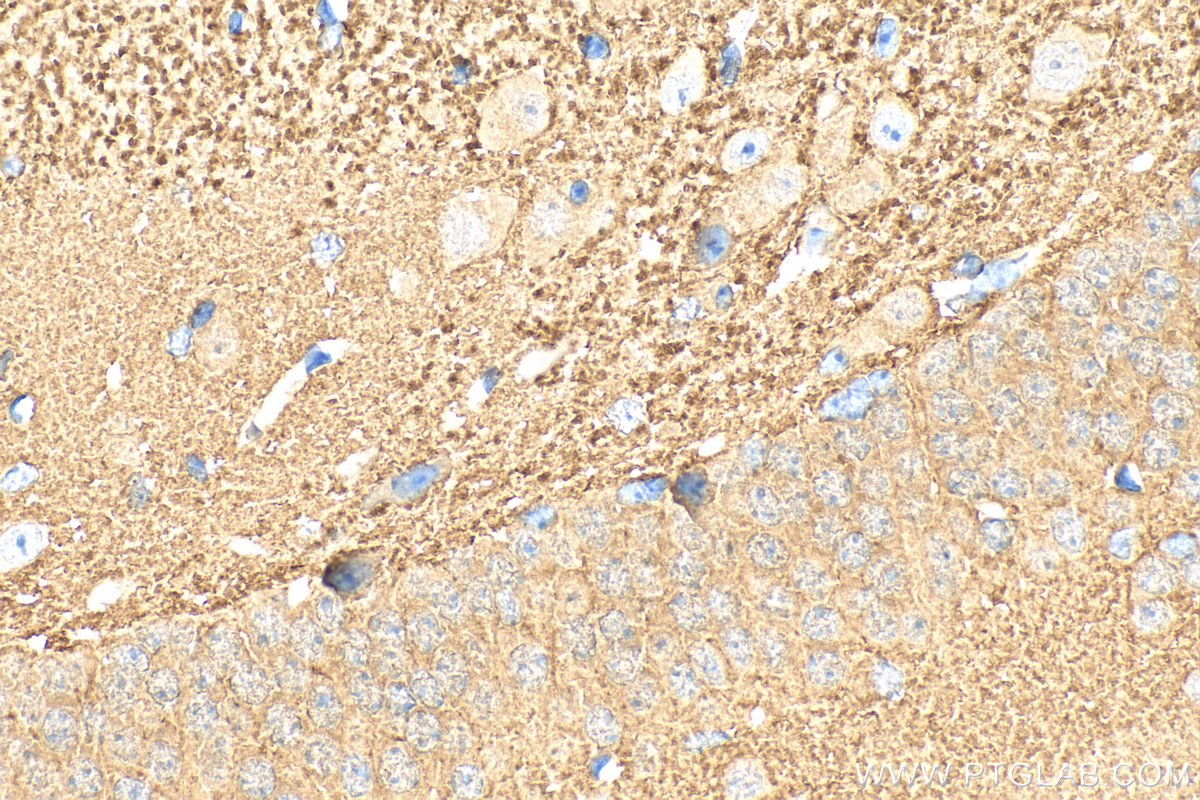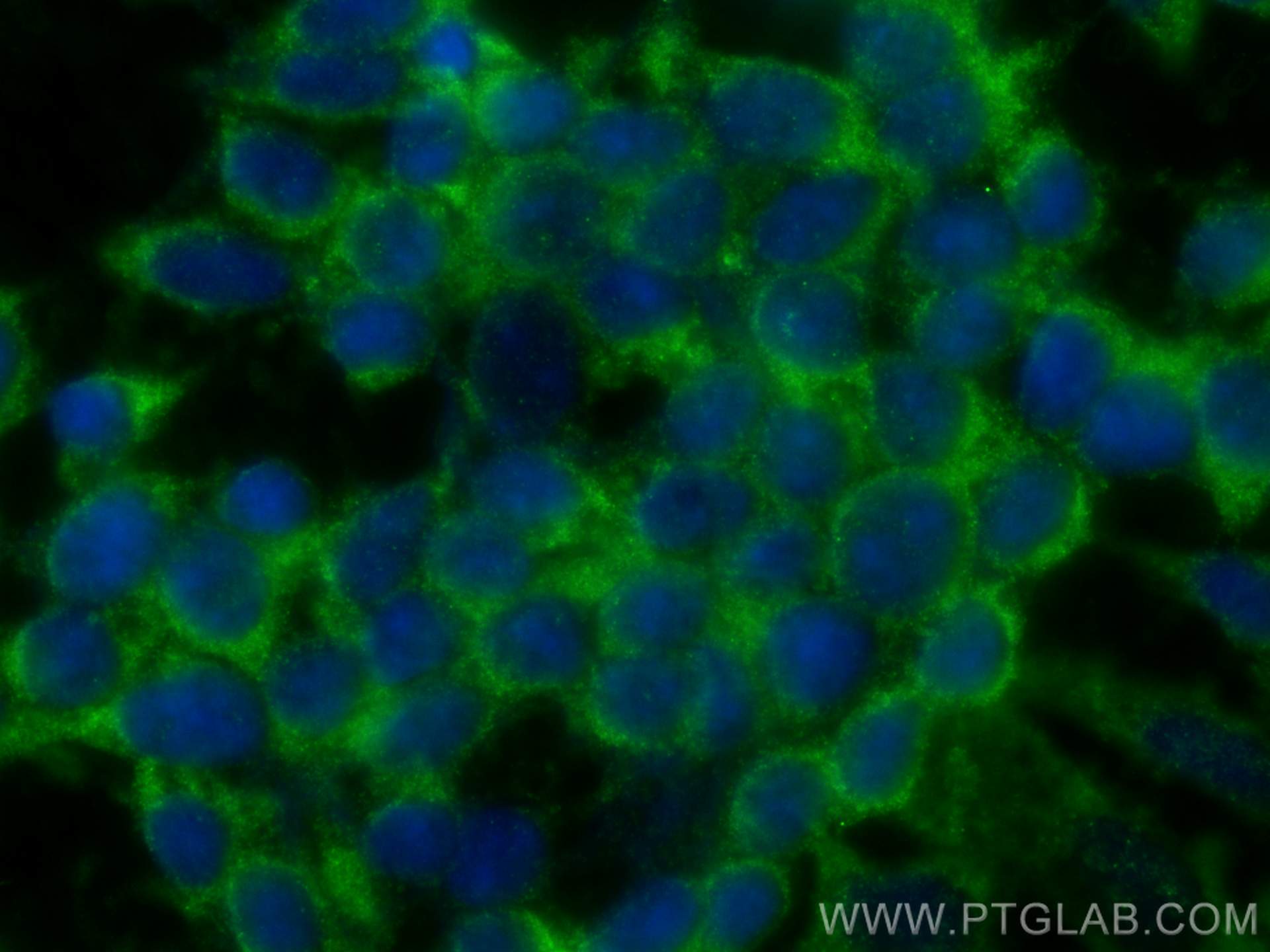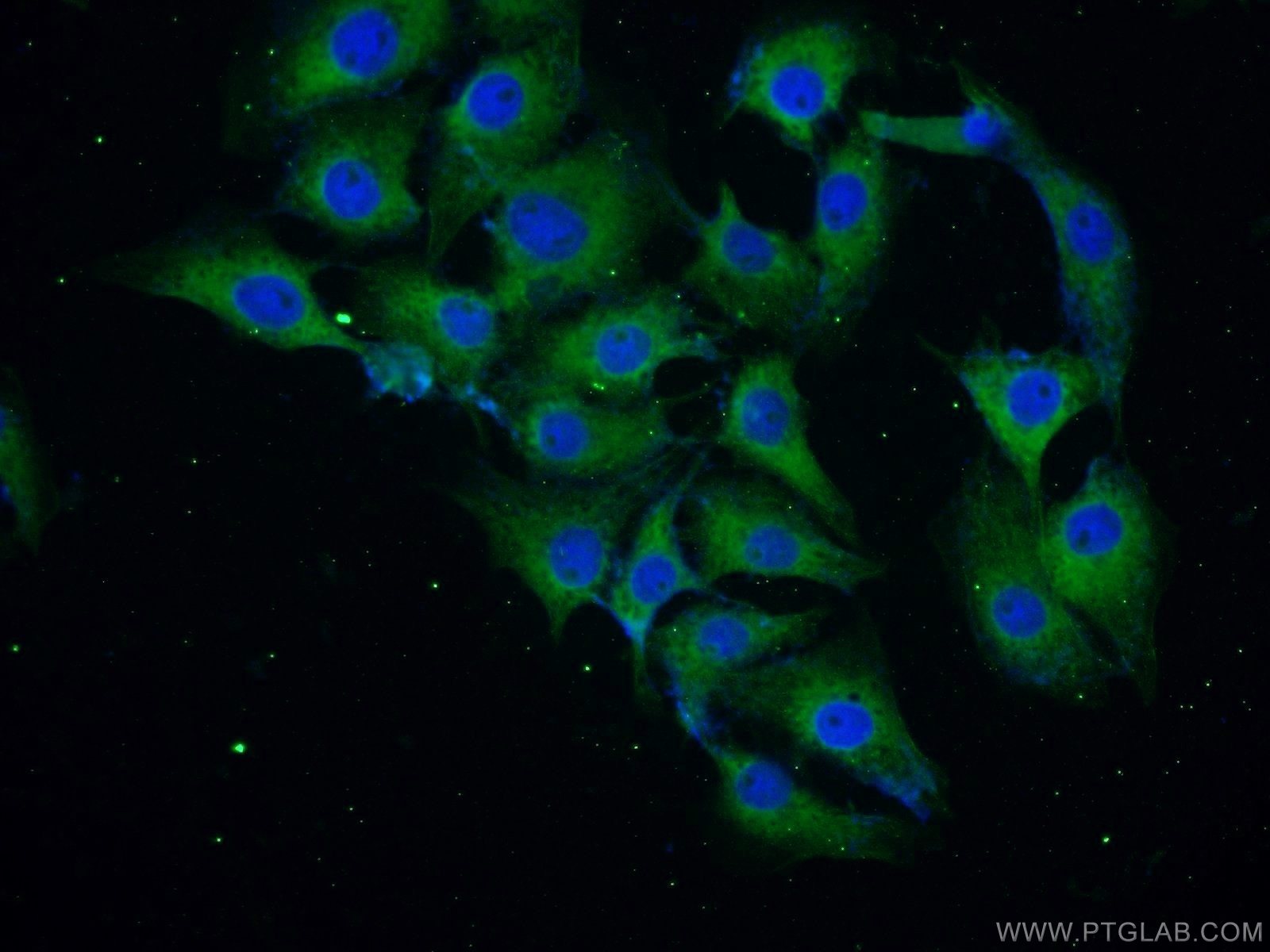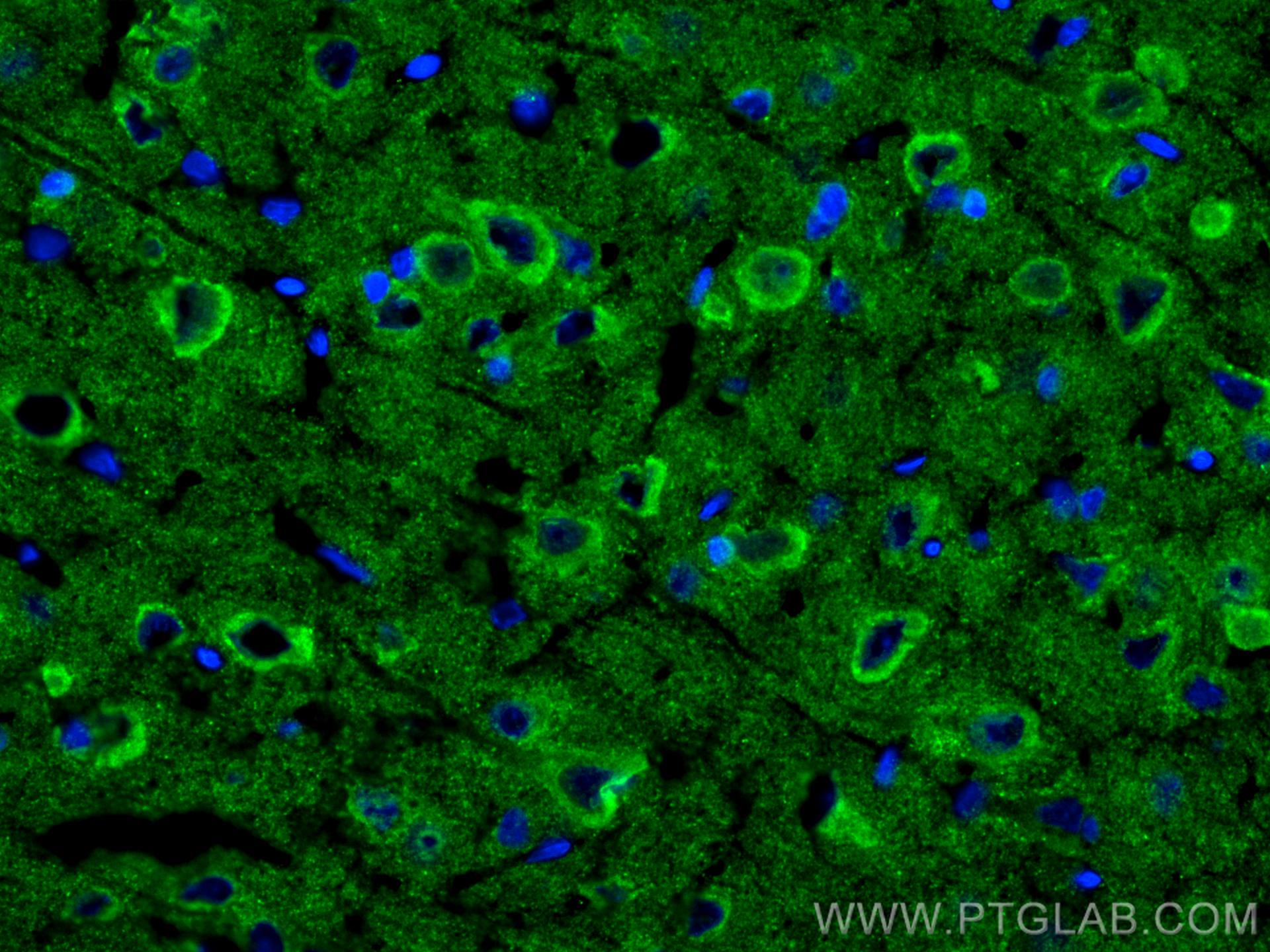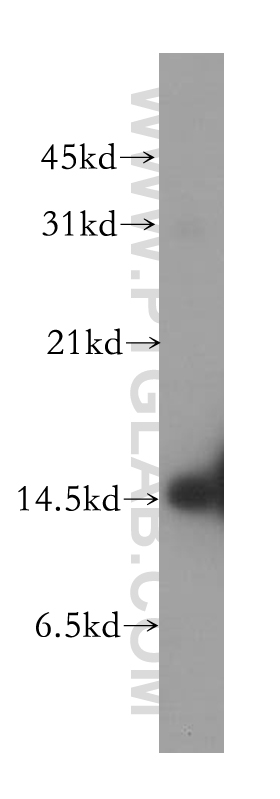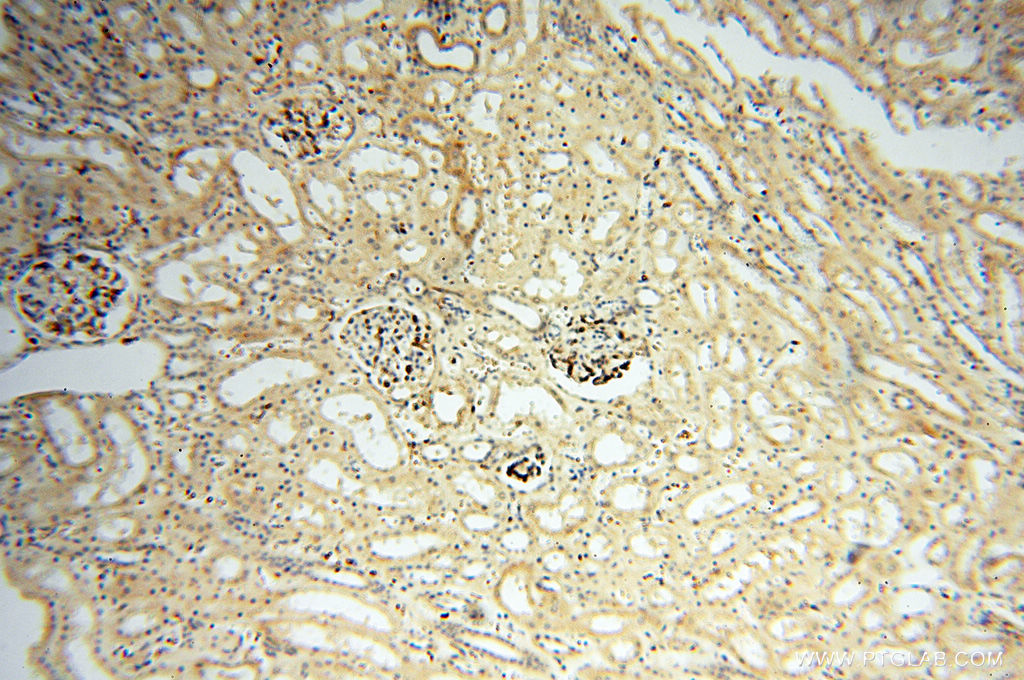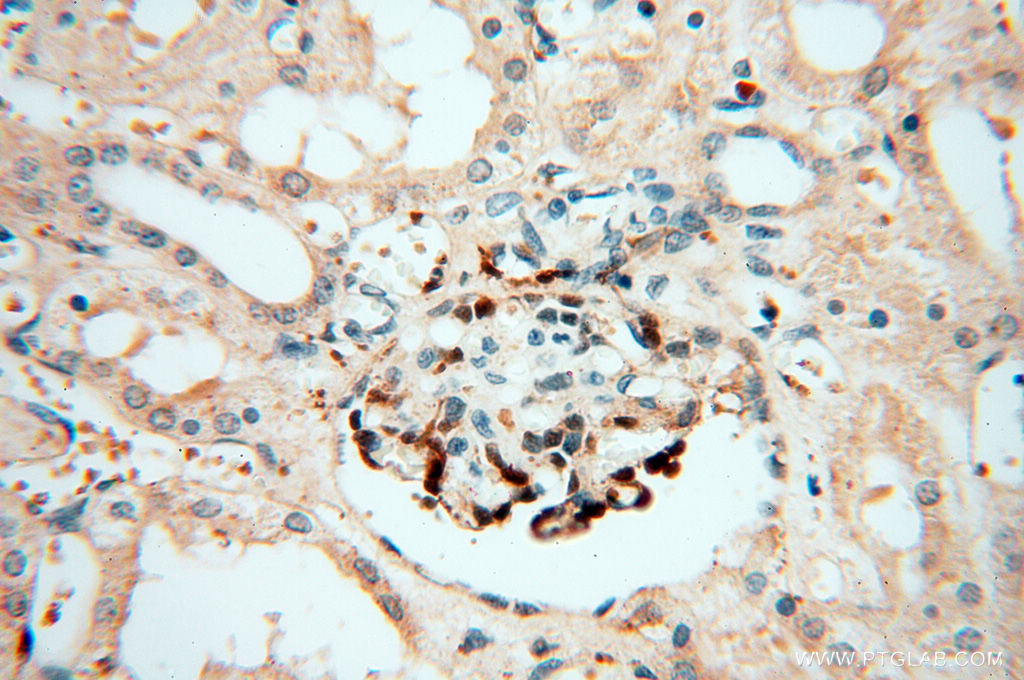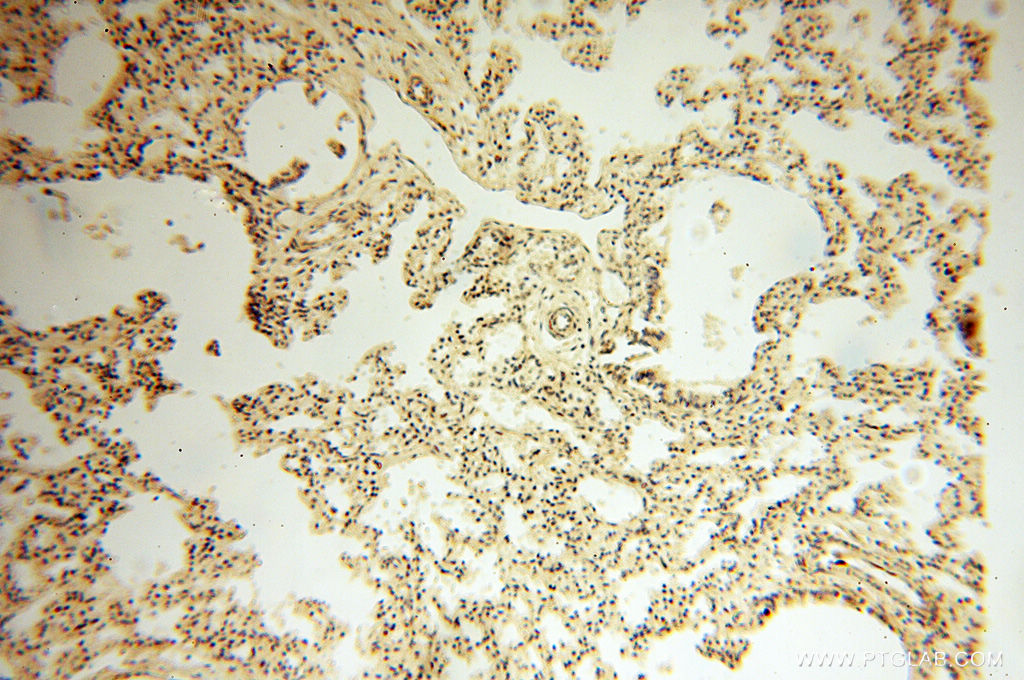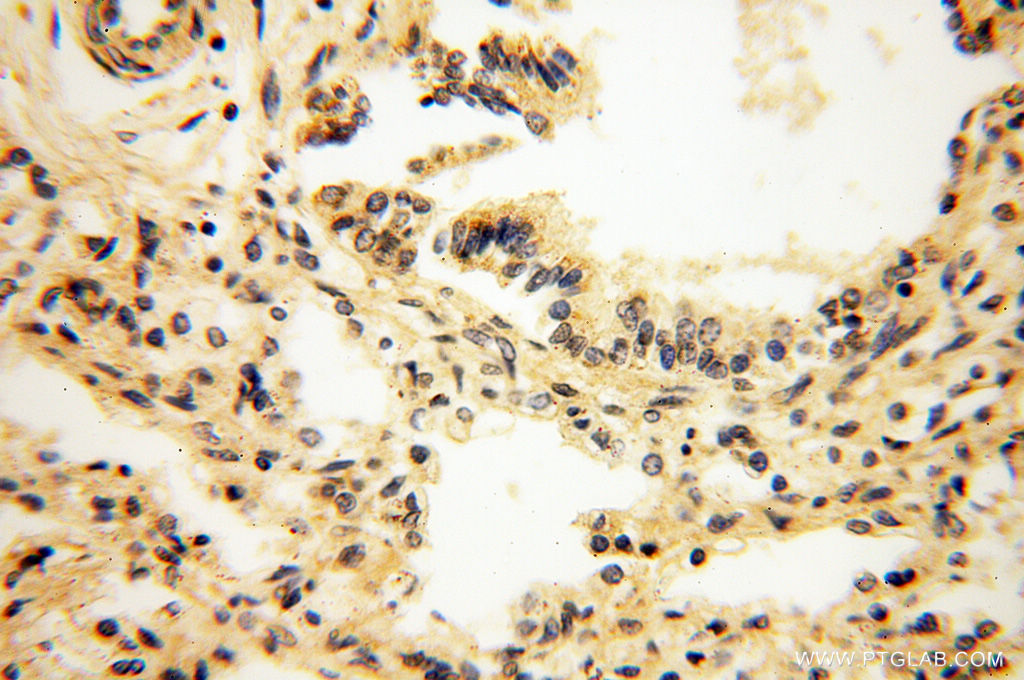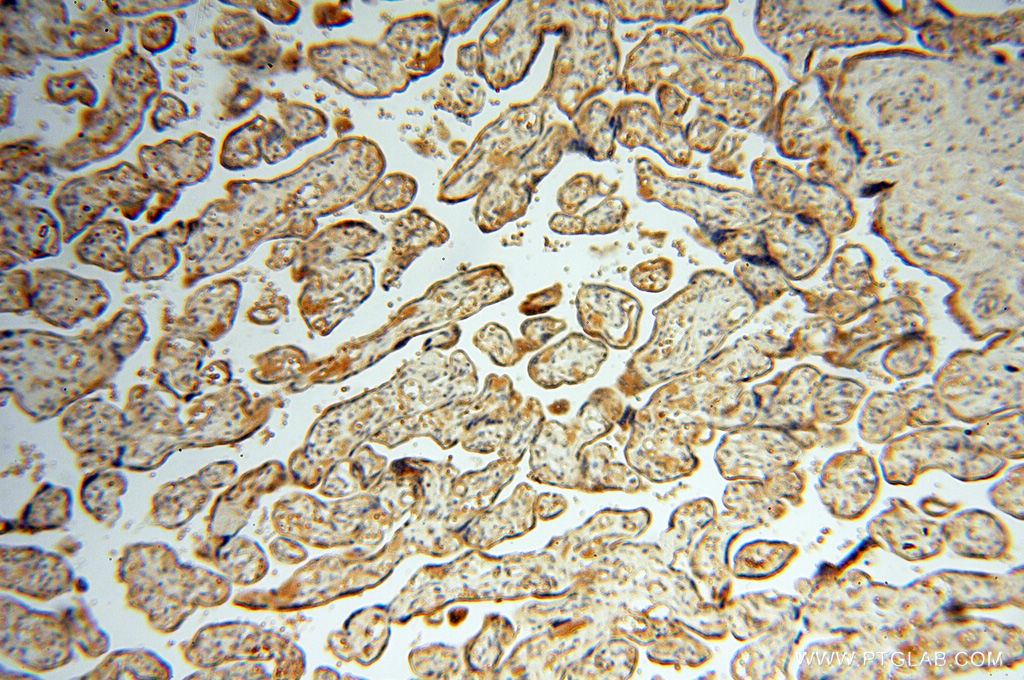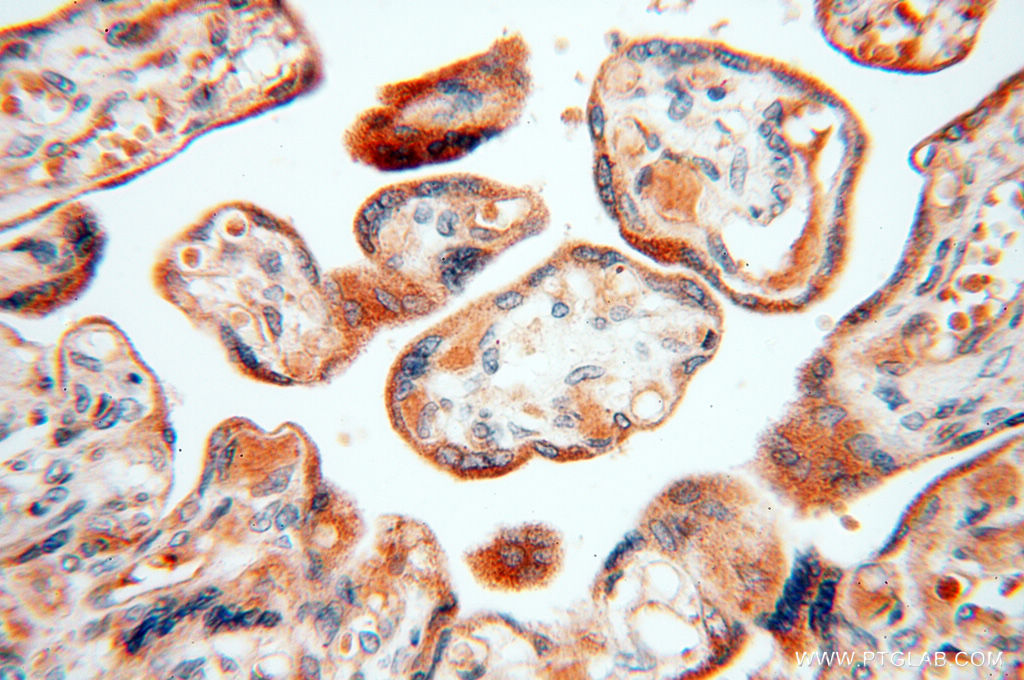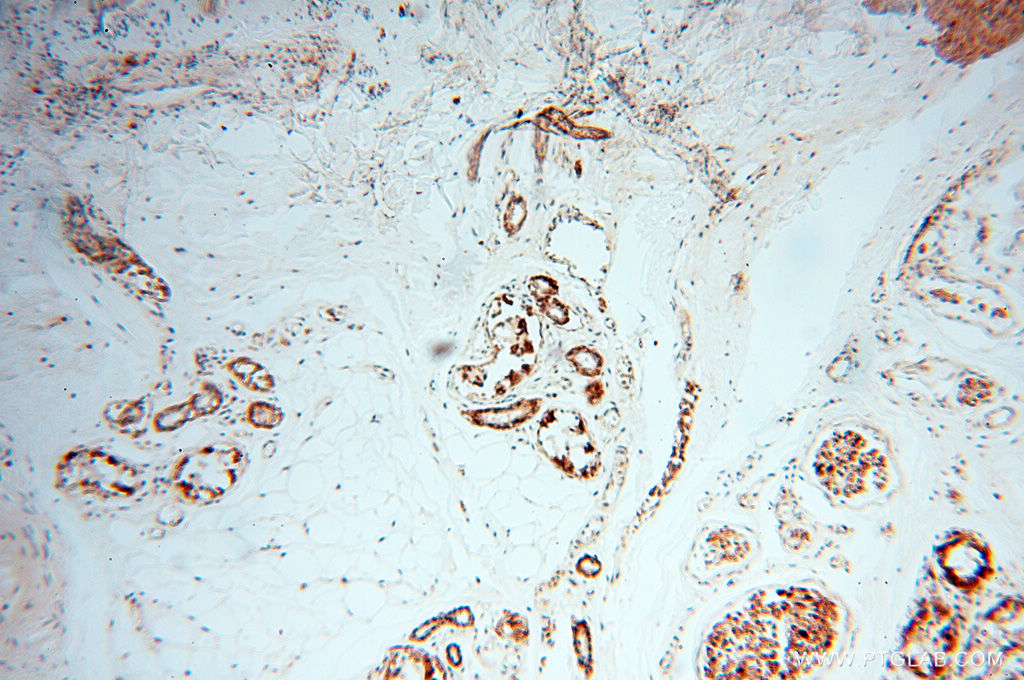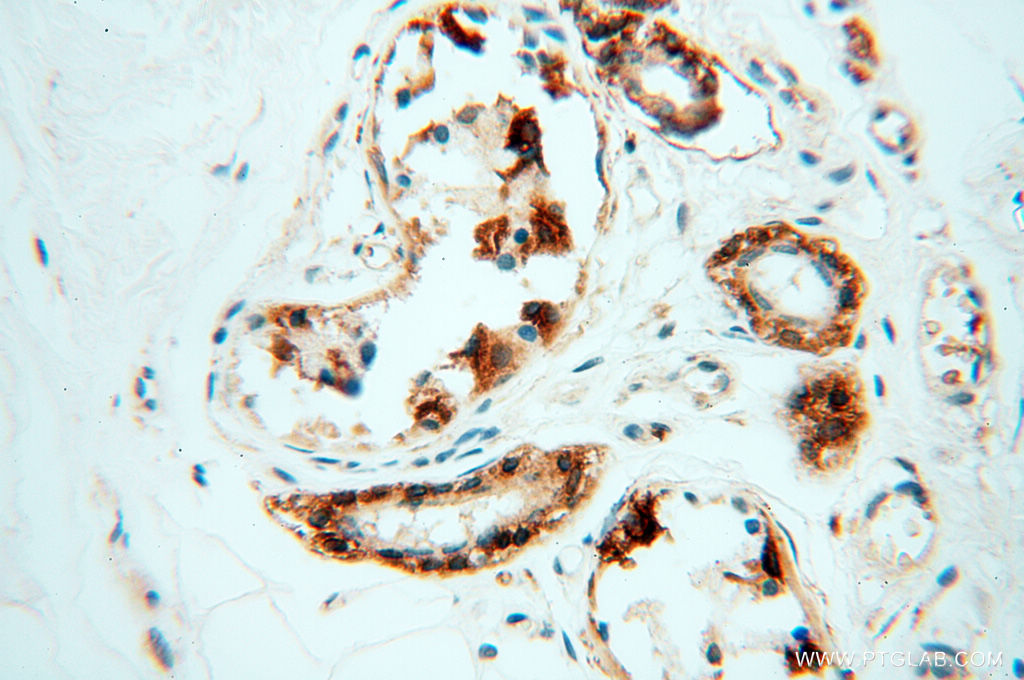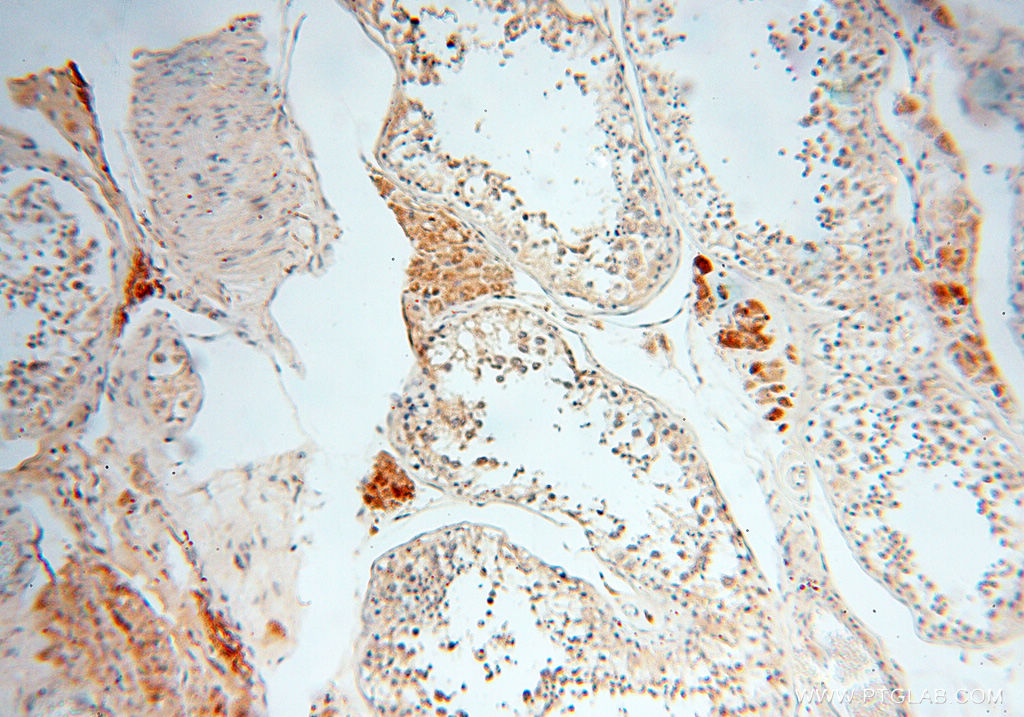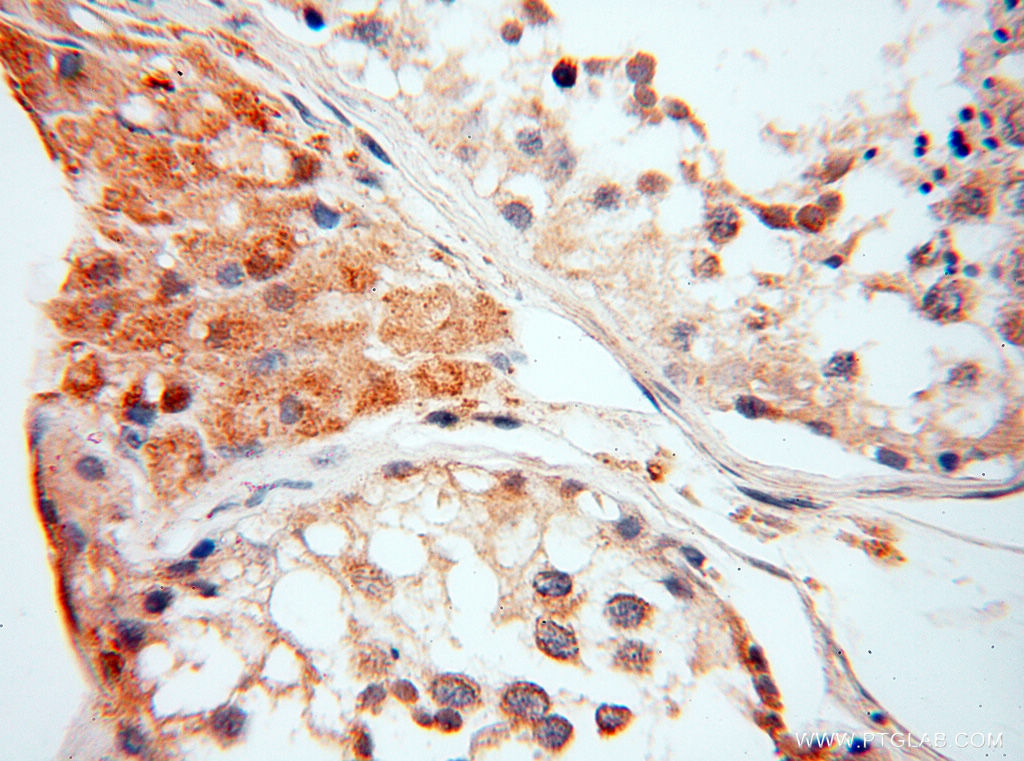WB Figures
WB analysis of human brain using 10842-1-AP (same clone as 10842-1-PBS)
human brain tissue were subjected to SDS PAGE followed by western blot with 10842-1-AP (SNCA antibody) at dilution of 1:0 incubated at room temperature for 1.5 hours. This data was developed using the same antibody clone with 10842-1-PBS in a different storage buffer formulation.
WB analysis using 10842-1-AP (same clone as 10842-1-PBS)
Various lysates were subjected to SDS PAGE followed by western blot with 10842-1-AP (alpha-synuclein antibody) at dilution of 1:800 incubated at room temperature for 1.5 hours. This data was developed using the same antibody clone with 10842-1-PBS in a different storage buffer formulation.
WB analysis using 10842-1-AP (same clone as 10842-1-PBS)
Various lysates were subjected to SDS PAGE followed by western blot with 10842-1-AP (Alpha Synuclein antibody) at dilution of 1:3000 incubated at room temperature for 1.5 hours. This data was developed using the same antibody clone with 10842-1-PBS in a different storage buffer formulation.
IHC staining of human kidney using 10842-1-AP (same clone as 10842-1-PBS)
Immunohistochemical analysis of paraffin-embedded human kidney using 10842-1-AP (SNCA antibody) at dilution of 1:50 (under 10x lens). This data was developed using the same antibody clone with 10842-1-PBS in a different storage buffer formulation.
IHC staining of human kidney using 10842-1-AP (same clone as 10842-1-PBS)
Immunohistochemical analysis of paraffin-embedded human kidney using 10842-1-AP (SNCA antibody) at dilution of 1:50 (under 40x lens). This data was developed using the same antibody clone with 10842-1-PBS in a different storage buffer formulation.
IHC staining of human lung using 10842-1-AP (same clone as 10842-1-PBS)
Immunohistochemical analysis of paraffin-embedded human lung using 10842-1-AP (SNCA antibody) at dilution of 1:50 (under 10x lens). This data was developed using the same antibody clone with 10842-1-PBS in a different storage buffer formulation.
IHC staining of human lung using 10842-1-AP (same clone as 10842-1-PBS)
Immunohistochemical analysis of paraffin-embedded human lung using 10842-1-AP (SNCA antibody) at dilution of 1:50 (under 40x lens). This data was developed using the same antibody clone with 10842-1-PBS in a different storage buffer formulation.
IHC staining of human placenta using 10842-1-AP (same clone as 10842-1-PBS)
Immunohistochemical analysis of paraffin-embedded human placenta using 10842-1-AP (SNCA antibody) at dilution of 1:50 (under 10x lens). This data was developed using the same antibody clone with 10842-1-PBS in a different storage buffer formulation.
IHC staining of human placenta using 10842-1-AP (same clone as 10842-1-PBS)
Immunohistochemical analysis of paraffin-embedded human placenta using 10842-1-AP (SNCA antibody) at dilution of 1:50 (under 40x lens). This data was developed using the same antibody clone with 10842-1-PBS in a different storage buffer formulation.
IHC staining of human skin using 10842-1-AP (same clone as 10842-1-PBS)
Immunohistochemical analysis of paraffin-embedded human skin using 10842-1-AP (SNCA antibody) at dilution of 1:50 (under 10x lens). This data was developed using the same antibody clone with 10842-1-PBS in a different storage buffer formulation.
IHC staining of human skin using 10842-1-AP (same clone as 10842-1-PBS)
Immunohistochemical analysis of paraffin-embedded human skin using 10842-1-AP (SNCA antibody) at dilution of 1:50 (under 40x lens). This data was developed using the same antibody clone with 10842-1-PBS in a different storage buffer formulation.
IHC staining of human testis using 10842-1-AP (same clone as 10842-1-PBS)
Immunohistochemical analysis of paraffin-embedded human testis using 10842-1-AP (SNCA antibody) at dilution of 1:50 (under 10x lens). This data was developed using the same antibody clone with 10842-1-PBS in a different storage buffer formulation.
IHC staining of human testis using 10842-1-AP (same clone as 10842-1-PBS)
Immunohistochemical analysis of paraffin-embedded human testis using 10842-1-AP (SNCA antibody) at dilution of 1:50 (under 40x lens). This data was developed using the same antibody clone with 10842-1-PBS in a different storage buffer formulation.
IHC staining of mouse brain using 10842-1-AP (same clone as 10842-1-PBS)
Immunohistochemical analysis of paraffin-embedded mouse brain tissue slide using 10842-1-AP (Alpha Synuclein antibody) at dilution of 1:200 (under 10x lens). Heat mediated antigen retrieval with Tris-EDTA buffer (pH 9.0). This data was developed using the same antibody clone with 10842-1-PBS in a different storage buffer formulation.
IHC staining of mouse brain using 10842-1-AP (same clone as 10842-1-PBS)
Immunohistochemical analysis of paraffin-embedded mouse brain tissue slide using 10842-1-AP (Alpha Synuclein antibody) at dilution of 1:200 (under 40x lens). Heat mediated antigen retrieval with Tris-EDTA buffer (pH 9.0). This data was developed using the same antibody clone with 10842-1-PBS in a different storage buffer formulation.
IHC staining of mouse brain using 10842-1-AP
Immunohistochemical analysis of paraffin-embedded mouse brain tissue slide using 10842-1-AP (alpha-synuclein antibody at dilution of 1:200 (under 10x lens). Heat mediated antigen retrieval with Tris-EDTA buffer (pH 9.0).
IHC staining of mouse brain using 10842-1-AP
Immunohistochemical analysis of paraffin-embedded mouse brain tissue slide using 10842-1-AP (alpha-synuclein antibody at dilution of 1:200 (under 40x lens). Heat mediated antigen retrieval with Tris-EDTA buffer (pH 9.0).

